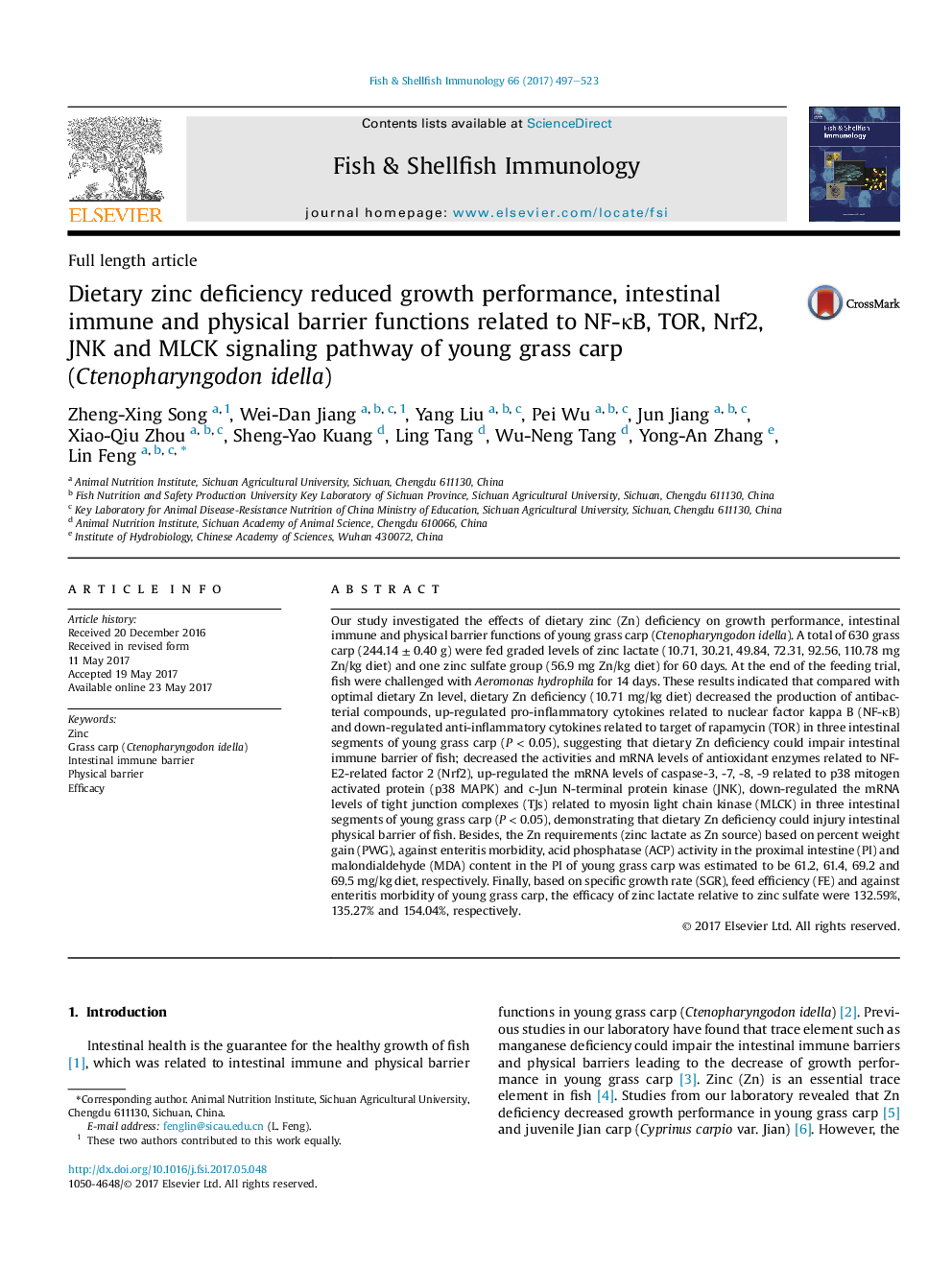| Article ID | Journal | Published Year | Pages | File Type |
|---|---|---|---|---|
| 5540750 | Fish & Shellfish Immunology | 2017 | 27 Pages |
Abstract
Our study investigated the effects of dietary zinc (Zn) deficiency on growth performance, intestinal immune and physical barrier functions of young grass carp (Ctenopharyngodon idella). A total of 630 grass carp (244.14 ± 0.40 g) were fed graded levels of zinc lactate (10.71, 30.21, 49.84, 72.31, 92.56, 110.78 mg Zn/kg diet) and one zinc sulfate group (56.9 mg Zn/kg diet) for 60 days. At the end of the feeding trial, fish were challenged with Aeromonas hydrophila for 14 days. These results indicated that compared with optimal dietary Zn level, dietary Zn deficiency (10.71 mg/kg diet) decreased the production of antibacterial compounds, up-regulated pro-inflammatory cytokines related to nuclear factor kappa B (NF-κB) and down-regulated anti-inflammatory cytokines related to target of rapamycin (TOR) in three intestinal segments of young grass carp (P < 0.05), suggesting that dietary Zn deficiency could impair intestinal immune barrier of fish; decreased the activities and mRNA levels of antioxidant enzymes related to NF-E2-related factor 2 (Nrf2), up-regulated the mRNA levels of caspase-3, -7, -8, -9 related to p38 mitogen activated protein (p38 MAPK) and c-Jun N-terminal protein kinase (JNK), down-regulated the mRNA levels of tight junction complexes (TJs) related to myosin light chain kinase (MLCK) in three intestinal segments of young grass carp (P < 0.05), demonstrating that dietary Zn deficiency could injury intestinal physical barrier of fish. Besides, the Zn requirements (zinc lactate as Zn source) based on percent weight gain (PWG), against enteritis morbidity, acid phosphatase (ACP) activity in the proximal intestine (PI) and malondialdehyde (MDA) content in the PI of young grass carp was estimated to be 61.2, 61.4, 69.2 and 69.5 mg/kg diet, respectively. Finally, based on specific growth rate (SGR), feed efficiency (FE) and against enteritis morbidity of young grass carp, the efficacy of zinc lactate relative to zinc sulfate were 132.59%, 135.27% and 154.04%, respectively.
Related Topics
Life Sciences
Agricultural and Biological Sciences
Aquatic Science
Authors
Zheng-Xing Song, Wei-Dan Jiang, Yang Liu, Pei Wu, Jun Jiang, Xiao-Qiu Zhou, Sheng-Yao Kuang, Ling Tang, Wu-Neng Tang, Yong-An Zhang, Lin Feng,
